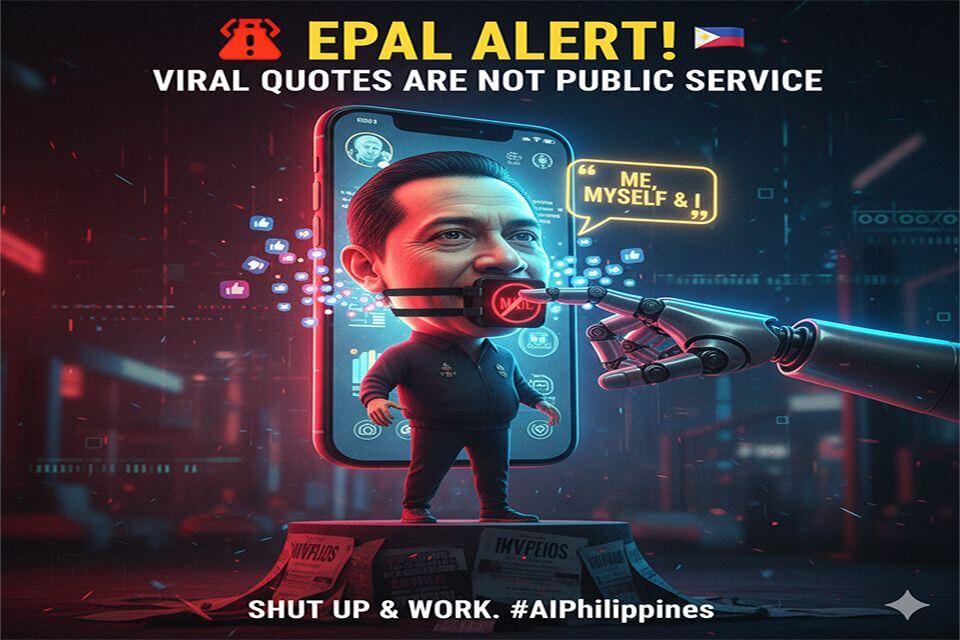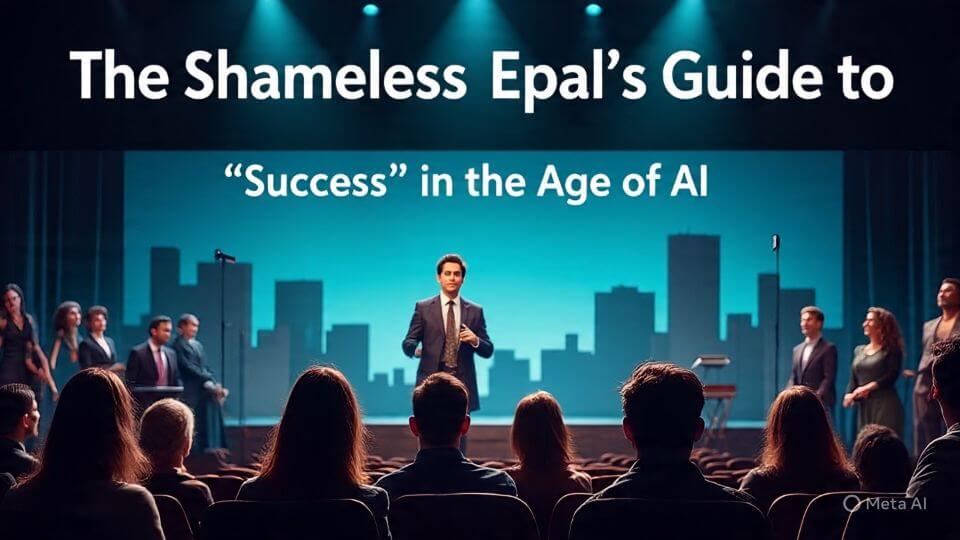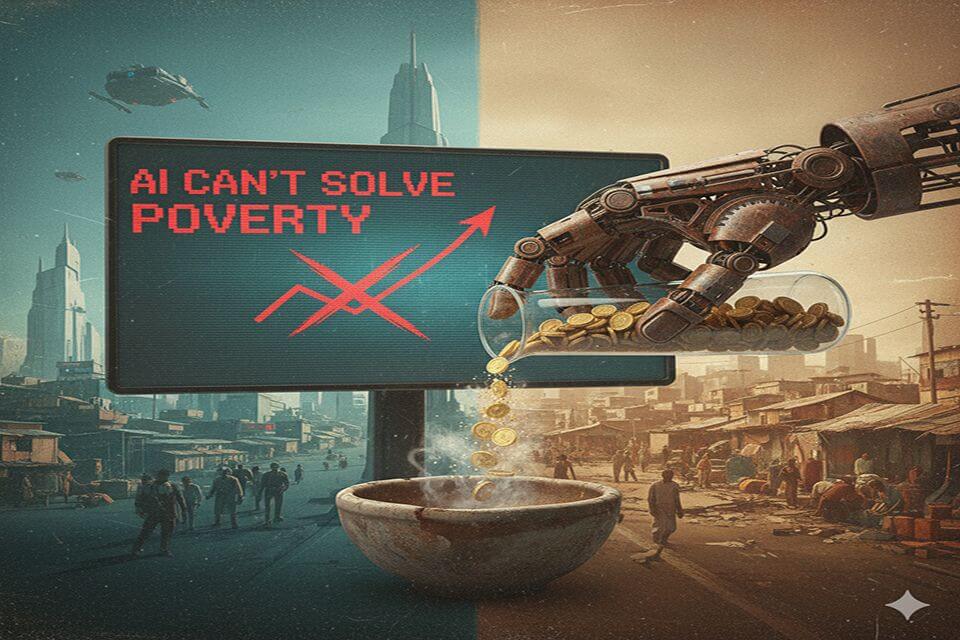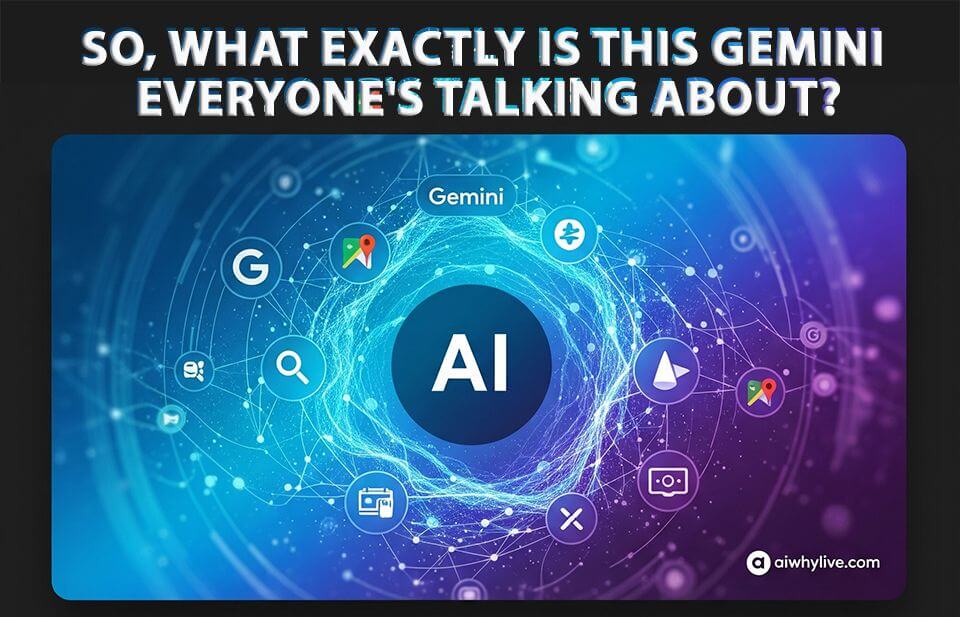Algorithms can predict typhoons, but they can’t filter epal posts during a flood
🧠 The Great Optimization Paradox
In the year 2025, we have optimized the planet’s data flow. Algorithms predict traffic jams, manage global supply chains, and can diagnose obscure ailments by reading a single blood test. Artificial Intelligence has successfully debugged inefficiency, complexity, and slow decision-making.
Yet, somehow, we remain critically vulnerable to the one threat the machine cannot fix: human stupidity.
Not the kind born of ignorance, but the kind born of will. The stupidity of self-interest so profound it warps reality—the political vanity, the loud, meaningless noise, and the deliberate invisibility during a crisis.
AI can analyze every transaction in a corrupt system, but it cannot delete greed from the human heart. It can map every pothole and food desert, but it cannot force the political actor to care about the maps when the nearest election is still a comfortable three years away.
📱 The Epal Optimization Module
Our local political class has fully embraced the digital revolution, not for governance, but for personal brand management. They are, in effect, self-optimizing bots, running the Epal Protocol.
The Epal Protocol prioritizes one metric above all others: Visibility Recall.
On social media, this means a tireless, 24/7 stream of highly-filtered, high-definition content:
- A carefully staged photo holding a single banana for a flood victim
- A generic, yet aggressive, post criticizing a rival
- A personalized birthday greeting graphic is plastered on every streetlight
The volume of this digital noise is inversely proportional to the actual effort exerted in public service. The goal is to generate noise-per-follower high enough to confuse the casual voter into believing proximity to the camera equals proficiency in office.
The machine has given them a perfect, infinite canvas for self-promotion. AI generates the best hashtags; AI predicts the optimal time to post. What AI cannot predict, and certainly cannot stop, is the profound epal joy derived from claiming credit for a project funded entirely by a debt that future generations will pay.
💸 Poverty as the Stage
In the Philippines, poverty is the perfect backdrop for stupidity.
- Relief goods become props for photo ops.
- Promises of jobs are recycled every three years.
- The poor are told to be patient, while the powerful are busy curating their feeds.
AI can calculate the poverty line, but it cannot calculate the indignity of waiting for help that never arrives.
⏳ The Perpetual Queue: Data the AI Filters Out
The deep, structural issues—the generational cycles of poverty, the broken infrastructure, the lack of opportunities that keep millions in perpetual struggle—exist, for AI, only as unprofitable data sets.
These problems lack urgency because they are constant. A predictable, low-grade crisis is not a bug that triggers an alert; it’s simply a feature of the operating system.
The impoverished and underserved are locked in what we might call The Perpetual Queue—a line AI knows will never move because moving it requires resources the powerful have decided are better allocated to the Epal Protocol’s operational budget (see: new tarpaulins).
🌬️ Crisis and the Algorithm of Apathy
When a real crisis hits—a storm, an inflation spike, a massive infrastructure failure—the most vocal proponents of the Optimized Future execute a perfect, coordinated retreat.
The digital noise abruptly ceases. The loud profiles go silent. The official accounts, once fountains of self-praise, become automated response loops pointing to broken hotlines.
The algorithm of apathy takes over, safely calculating that, with the next election cycle still comfortably far away, the political cost of temporary invisibility is negligible. Why get dirty helping when you can just wait for the public memory cache to clear?
🗣️ The Epal Paradox
Epal culture thrives because stupidity is performative. A politician posts a photo handing out one sack of rice, and the comments overflow with gratitude. Meanwhile, the systems that could actually reduce poverty remain broken, unfunded, or ignored.
AI can optimize logistics, but it cannot optimize sincerity.
⚖️ The Debugging Question
AI was supposed to usher in the Age of Reason. Instead, it has merely created the Age of Perfect Self-Deception, giving the small-minded politician better tools to amplify their own emptiness.
If Artificial Intelligence can solve the secrets of the universe, why can’t it solve the basic flaw of human governance—the epal syndrome?
Because, ultimately, AI relies on data. And the human flaws we are witnessing—the manufactured outrage, the feigned empathy, the self-serving silence—are not data points that can be fixed with logic. They are human constants. They are the deliberate, self-sustaining stupidity that no code can debug, leaving the masses defenseless against the performance.
📢 The Takeaway: So What?
AI may be the future, but stupidity is timeless. Until accountability matters more than selfies, until crisis response matters more than likes, we remain defenseless.
Sometimes, the smartest algorithm is simply the memory of who showed up when the storm came—and who only showed up when the cameras did.







